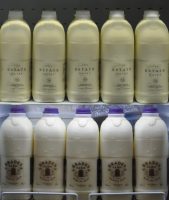 Welcome to the first of my detailed write-ups of this year’s London Coffee Festival. If you want to know what I made of the festival as a whole, take a look at my round-up. Here I’ll be covering individual aspects of the festival, such as kit & cups, my coffee experiences and the coffee itself. However, I’m going to kick things off with a look at something that I’ve not covered explicitly before: sustainability.
Welcome to the first of my detailed write-ups of this year’s London Coffee Festival. If you want to know what I made of the festival as a whole, take a look at my round-up. Here I’ll be covering individual aspects of the festival, such as kit & cups, my coffee experiences and the coffee itself. However, I’m going to kick things off with a look at something that I’ve not covered explicitly before: sustainability.
Of course, one small facet of sustainability is re-usable cups, which I have covered in previous years, and will look at again this year. I have even produced a page on the Coffee Spot, dedicated to re-usable cups. Today I want to look at two more small facets of sustainability. One is a company which is dedicated to a zero-waste approach to coffee and the other is milk.
You might not immediately think of milk under the category of “sustainability”, but I would argue that just as speciality coffee goes to great lengths to ensure coffee farming is a sustainable business, so it is with the UK dairy industry. While coffee can’t single-handedly save the dairy industry, it has a role to play.
You can see what I found after the gallery.
I first really became aware of milk as an issue for speciality coffee when I visited Upshot Espresso in Sheffield and learnt about local dairy, Our Cow Molly, which supplies Upshot and several other Sheffield coffee shops. Since then, I’ve become more aware of the role of speciality coffee in the dairy industry and the impact it can have. Put simply, in the same way that specialty coffee pays a quality premium to coffee farms, lifting them out of the commodity market, so I believe that speciality coffee needs to pay a premium to dairy farms for quality milk. This will have a similar impact, lifting them out of the commodity market, where dairy farmers are sometimes paid below the cost of production.
According to the Agriculture and Horticulture Development Board, more than 1,000 UK dairy farms went out of business in the three-year period from June 2013 to June 2016. This is 10% of the UK total and, in the long-term, is unsustainable, so something needs to be done. For example, I came across Stephensons Diary at Cup North in 2015. Stephensons is a milk processor which can trace its milk back to an individual herd. All the herds which supply Stephensons are free-range, each with its own unique characteristics, allowing Stephensons to pay a premium to the farmers based on the quality of the milk.
At this year’s London Coffee Festival, I met up with The Estate Dairy and Allan Reeder Ltd, two companies who have taken things one step further, with milk aimed specifically at the coffee industry (although, as I discovered when I visited their stands at the London Coffee Festival, it tastes just as good on its own). Both obtain their milk from single herds, providing the sort of accountability and traceability that the specialty coffee industry demands when sourcing green beans.
However, unlike the majority of the dairy industry, where milk is homogenised, both The Estate Dairy and Allan Reeder supply unhomogenised milk, which is better for steaming, resulting in extra rich, super smooth flat whites. Homogenisation, by the way, is the process of breaking the globules of fat in milk into smaller particles which don’t separate out. This stops the cream floating to the top of the milk like it used to in my childhood, ensuring a more uniform distribution of fat throughout the milk. Naively, you’d think that this would lead to better steaming, but apparently the smaller globules don’t steam as well.
The Estate Dairy was set up by Shaun and Rebecca Young, along with Morten Münchow. Readers may remember Shaun from the Noble Espresso coffee stall at King’s Cross, which Shaun gave up to concentrate on the growing dairy business. The initial idea came from Rebecca’s father, a retired dairy farmer, and you can read more about The Estate Dairy’s origins in this excellent article by Kate Beard in Sprudge.
Building on pioneering work in Australia and also research carried out by Morten in Denmark, The Estate Diary has full control over the cows’ nutrition, aiming for high protein, high fat content milk. The Estate Diary uses a herd of Guernsey cows at Bickfield Farm, just outside Bristol, with the milk being processed just a mile from the fields.
In contrast, Allan Reeder is a long-established dairy wholesaler from London, which launched its own range of barista milk just before the London Coffee Festival. It is supplied with milk from a mix of 70% Holstein and 30% Jersey cows from Brades Farm in Lancashire, which originally supplied The Estate Dairy.
Like any organic product from a single source, the precise composition of the milk varies depending on, for example, the time of year and the rainfall (which affects the growth of the grass). Perhaps the biggest factor is when the cows move indoors for the winter, switching from grass to feed. In the case of The Estate Dairy, this is managed by having an extended change-over period so the milk doesn’t differ too dramatically.
While Allan Reader is just getting going with its barista milk, The Estate Dairy has been phenomenally successful. In just over a year, it’s grown to supply over 200 coffee shops in London and is looking to expand to Bristol and Bath as well. There are also plans to move into other products, such as butter and yoghurt.
Of course, none of this would be any good if the farmers were still being paid below the cost of production. Fortunately, both The Estate Diary and Allan Reeder are able to pay a premium for the high quality milk they’re receiving. Bickfield Farm is paid 10p per litre over the market price, while Brades Farm sets the price it charges for the milk.
In closing, I should say that while The Estate Dairy and Allan Reeder are the only suppliers I know who are producing milk specifically for use with coffee, there are many more working to support the dairy industry. Around the country, speciality coffee shops are working closely with local dairies to ensure that farmers are paid a fair price for their milk. Hopefully we will see more of this as time goes on.
You can see more on the theme of sustainability after the gallery.
To finish off this first, detailed post from this year’s London Coffee Festival, I wanted to take a look at Green Cup. Green Cup takes an innovative, cradle-to-grave approach to sustainability, starting with the supply of coffee. Green Cup sources coffee from around the world, roasting it on a 30kg Loring, widely recognised as one of the most environmentally-efficient roasters on the market. It also uses fully biodegradable coffee bags, which includes the zip and valve (most other biodegradable bags require you to remove the zip/valve, which have to be disposed of separately).
So far, so good. However, Green Cup doesn’t just supply coffee; it also collects the used coffee grounds from its customers, before processes them and turning them into a variety of interesting products. In this, Green Cup benefits from an economy-of-scale not usually available to small-batch roasters, who are often supplying individual coffee shops. In contrast, Green Cup supplies much larger customers, including a national chain of garden centres, so it can make the collection process much more efficient. What’s more, some of the recycled products, fertiliser pellets and soil conditioners for example, are perfect for the garden centres.
One of my favourite products from last year’s London Coffee Festival was the Kaffeeform Cup, made from recycled coffee grounds. Not to be outdone, Green Cup also produces materials from recycled coffee grounds. For example, the counter on the stand was made from a compound containing 60% recycled coffee grounds, as are the panels of the Sanremo Verde espresso machine which I first came across at the Caffe Culture Show three years ago. Finally, Green Cup collaborates with others, such as designer, Rosalie McMillan, who turns Green Cup’s recycled coffee grounds into jewellery.
That’s all from the London Coffee Festival for this post. You can see what I found when I looked at kit & cups in the next of my detailed write-ups.
For other perspectives on the Festival, check out the following reviews by Jenny Ferreira, Bean There At, Bex, Audrey Fiodorenko and the Commodities Connoisseur. For a slightly more quirky take on things, here’s an interesting article from Sprudge and for a more food-orientated look at things, here’s MiSU’s take on the festival.
If you’ve written a review of the festival, drop me a line with the link and I’ll add it in.
If you liked this post, please let me know by clicking the “Like” button. If you have a WordPress account and you don’t mind everyone knowing that you liked this post, you can use the “Like this” button right at the bottom instead. [bawlu_buttons]
Don’t forget that you can share this post with your friends using the buttons below.

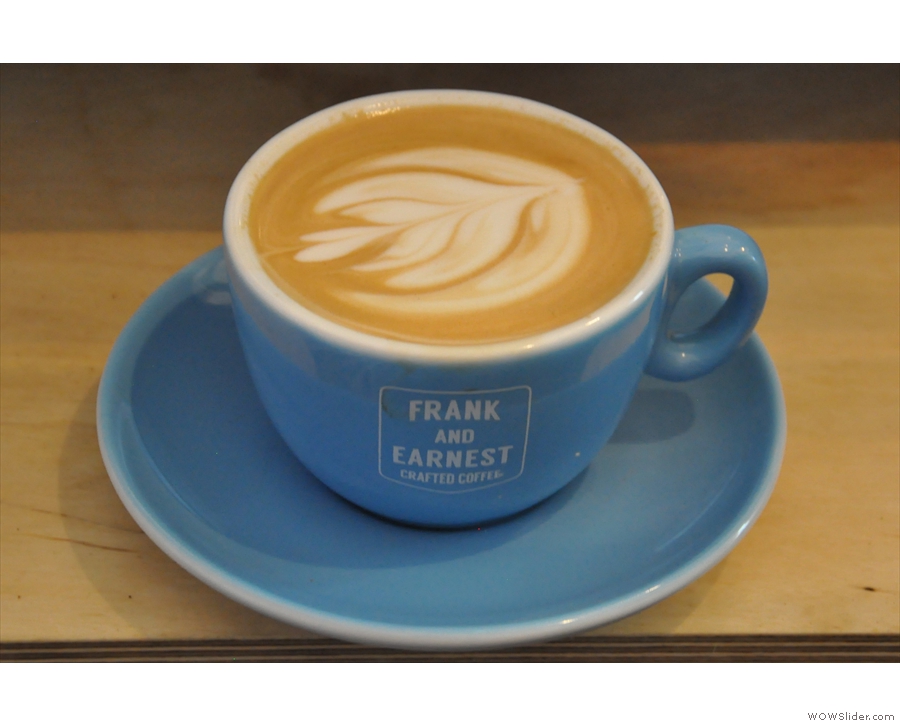
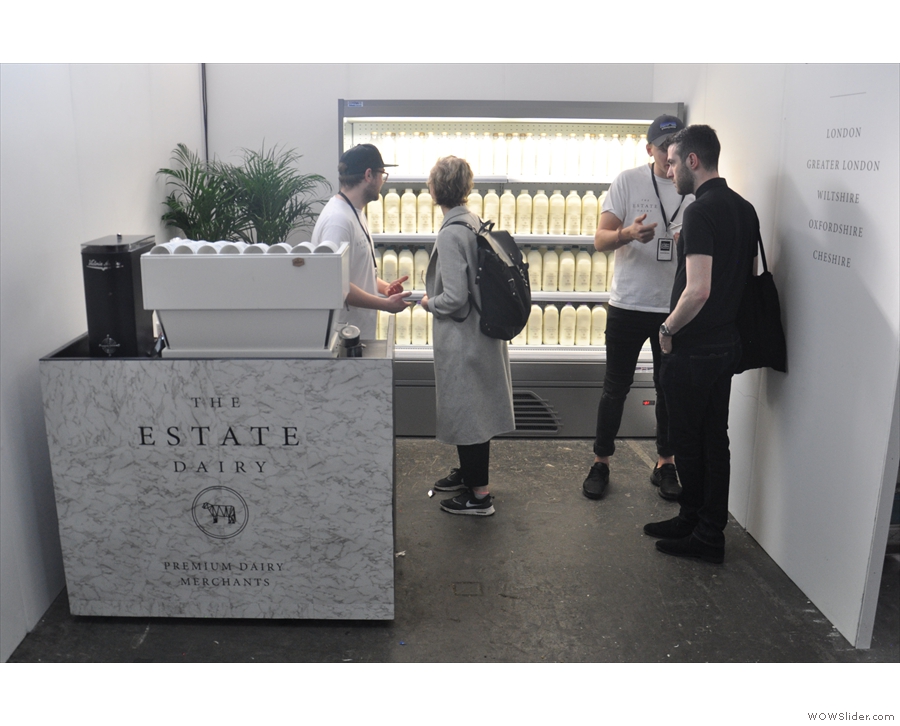
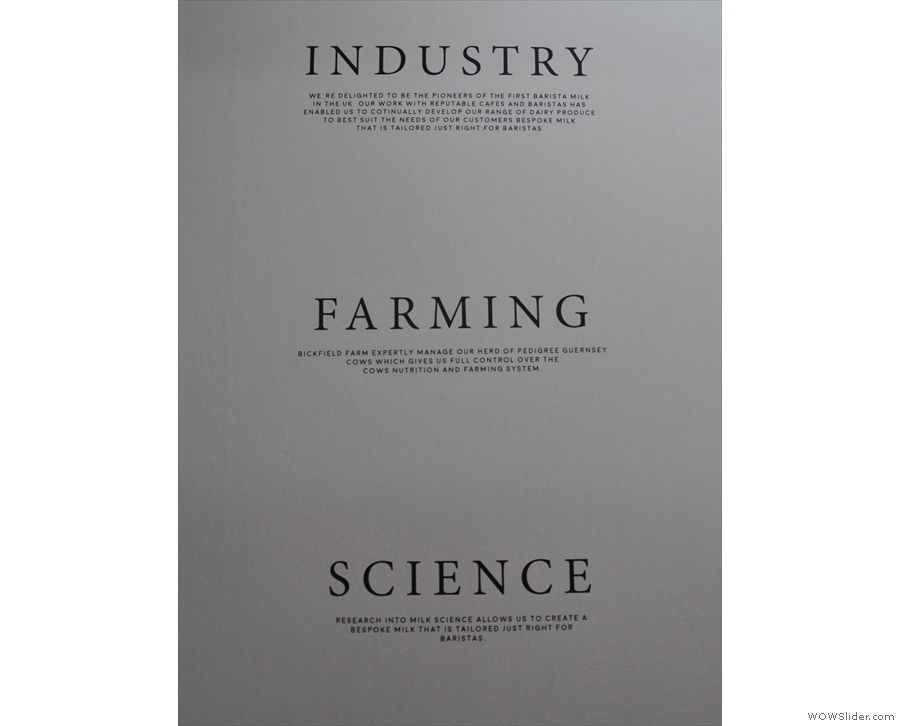
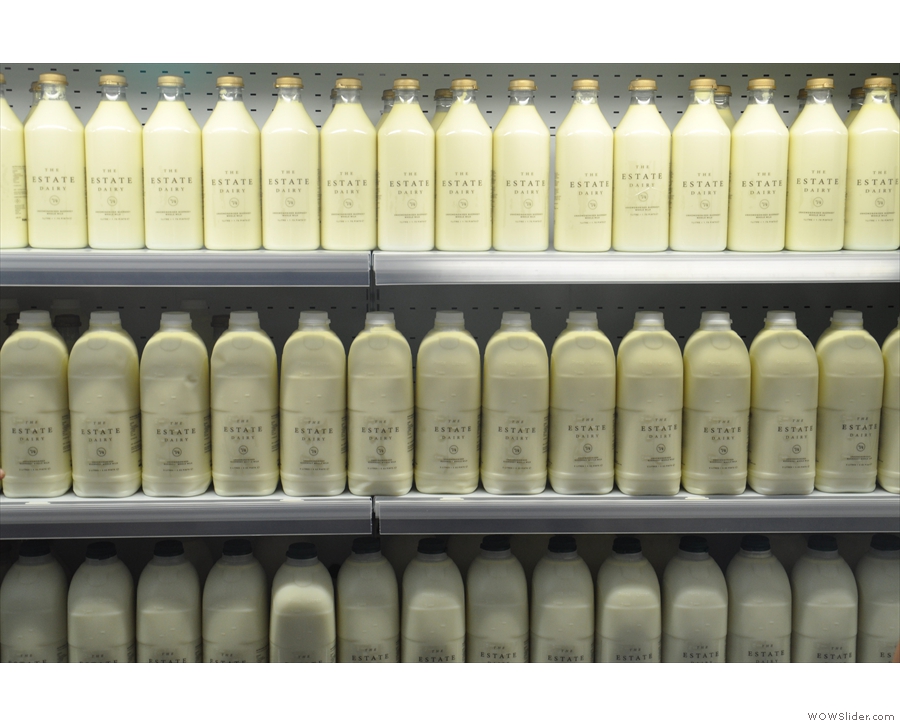
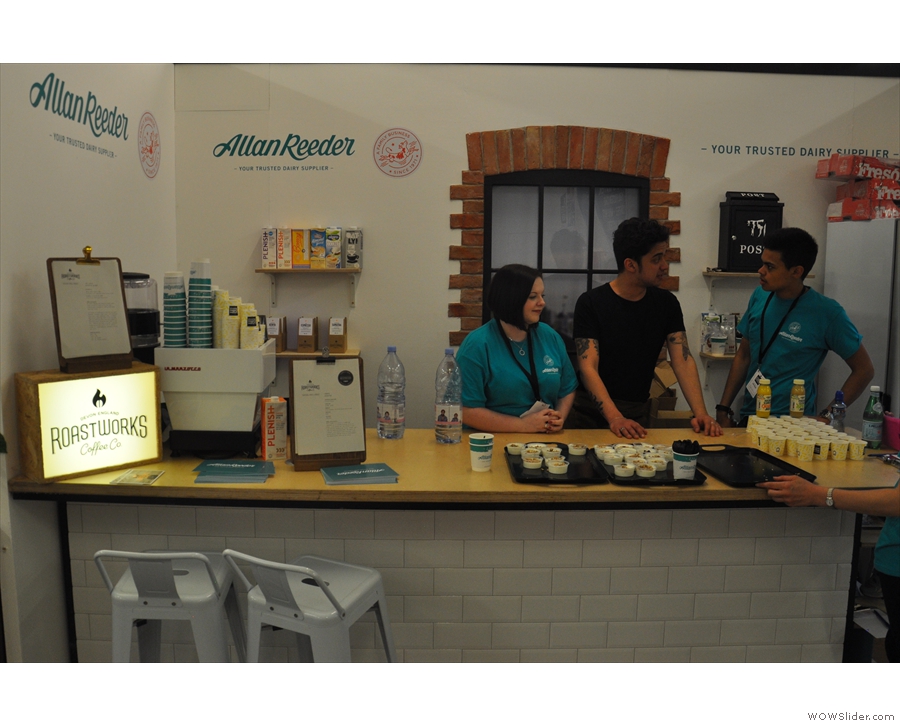
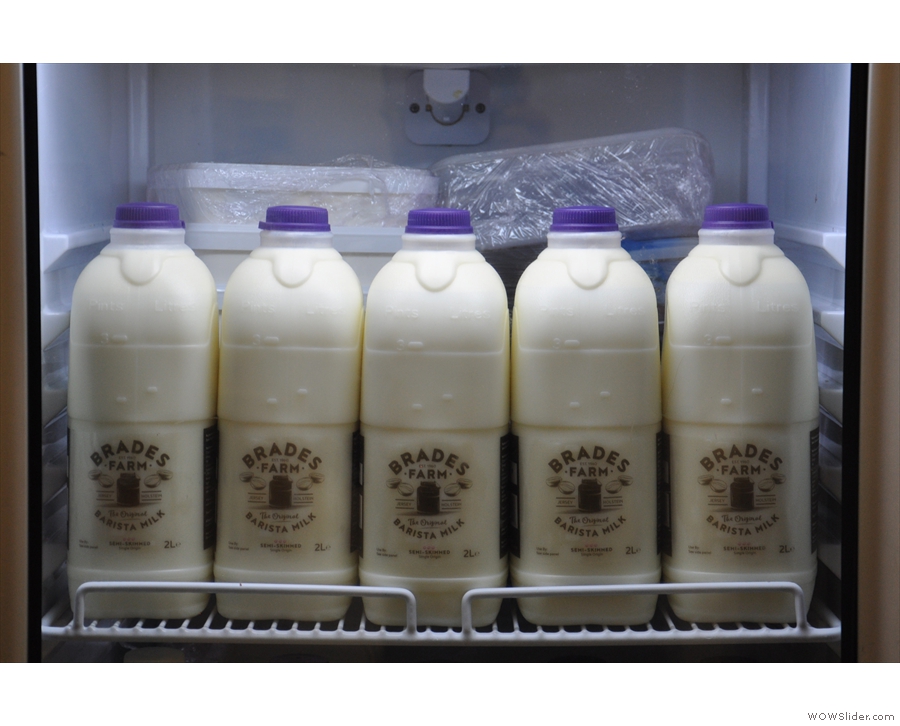
 1
1 2
2 3
3 4
4 5
5 6
6
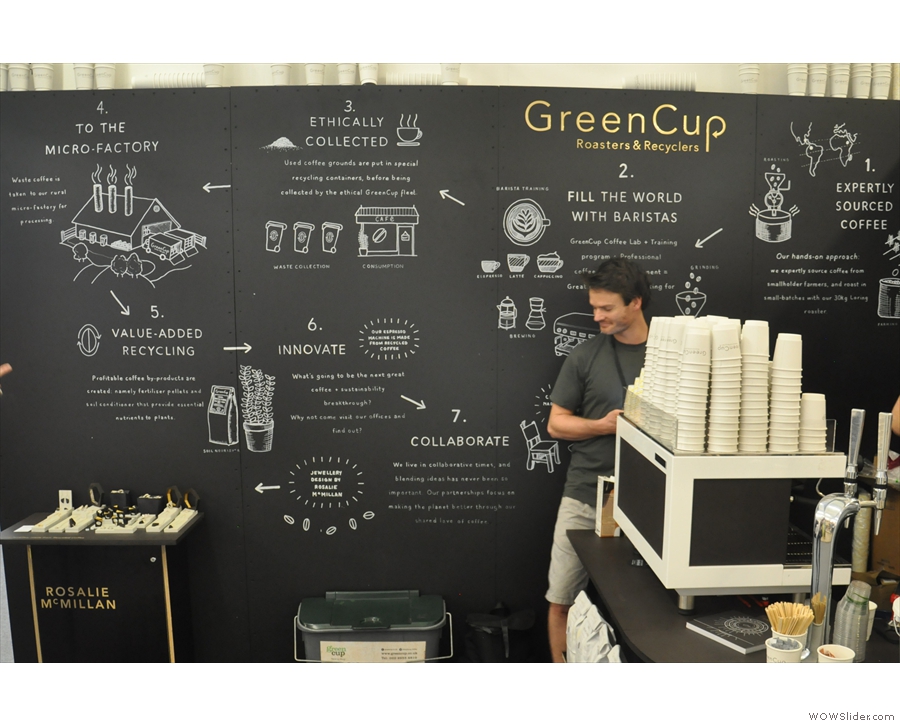
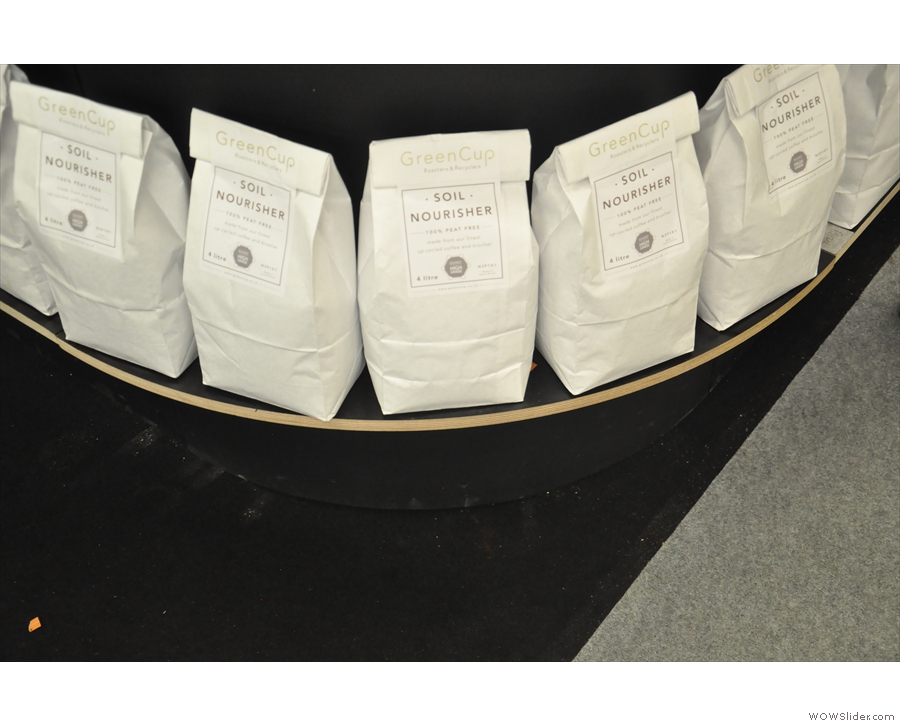
 1
1 2
2 3
3
Pingback: London Coffee Festival 2017: Round-up | Brian's Coffee Spot
Pingback: London Coffee Festival 2017: Kit & Cups | Brian's Coffee Spot
Pingback: London Coffee Festival 2017: Coffee Experiences | Brian's Coffee Spot
Pingback: Noble Espresso | Brian's Coffee Spot
Pingback: Glasgow Coffee Festival 2017 Part III | Brian's Coffee Spot
Pingback: London Coffee Festival 2017: Coffee | Brian's Coffee Spot
Pingback: Treves & Hyde | Brian's Coffee Spot
Pingback: Exmouth Market Grind | Brian's Coffee Spot
Pingback: Craft Coffee, King’s Cross | Brian's Coffee Spot
Pingback: The Cran’ | Brian's Coffee Spot
Pingback: The Fifth Taste | Brian's Coffee Spot
Pingback: V69 | Brian's Coffee Spot
Pingback: Escape the Daily Grind | Brian's Coffee Spot
Pingback: Redemption Roasters, Lambs Conduit Street | Brian's Coffee Spot
Pingback: Estate Office Coffee | Brian's Coffee Spot
Pingback: Birmingham Coffee Festival 2019: Part III | Brian's Coffee Spot
Pingback: Fortitude Bakehouse | Brian's Coffee Spot
Pingback: Canopy Coffee (COVID-19 Update) | Brian's Coffee Spot
Pingback: Cable Co., The Aircraft Factory | Brian's Coffee Spot
Pingback: Over Under Coffee, Wandsworth Town | Brian's Coffee Spot
Pingback: 2021 Awards – Best Flat White | Brian's Coffee Spot